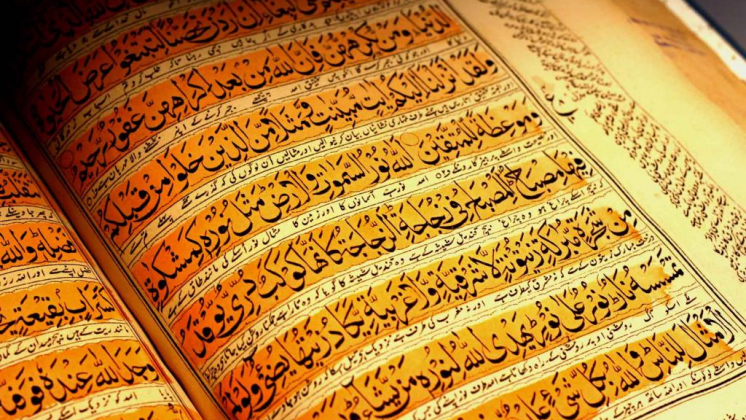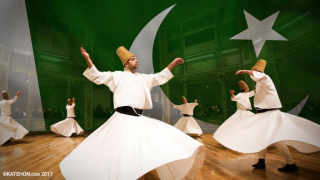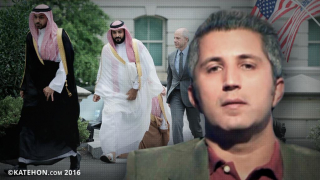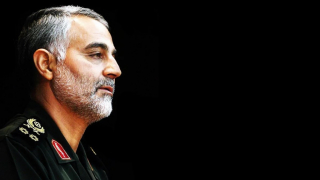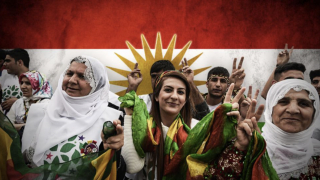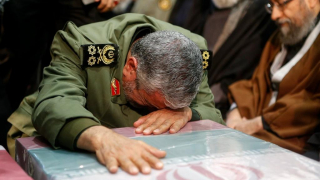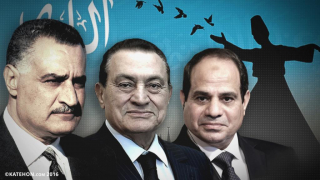Muslims in the Time of Identity Crisis
Recently Turkey’s president Recep Tayyip Erdogan said there is nothing like “moderate Islam” in Islam. This was a subtle rebuttal to Crown Prince Mohammed Bin Salman’s proclamation that he would bring the Kingdom of Saudi Arabia back to the fold of “moderate Islam”. Turkey’s president believes the phrase is ascribed to Islam by the U.S.-West axis of the press – both electronic and print. But the reality on the ground suggests the opposite of Erdogan’s position. However, the crown prince’s proclamation reverberated beyond the shores of his Kingdom.
WHAT THE KINGDOM AND THE MONARCHY REPRESENT
The Kingdom of Saudi Arabia under the leadership of the house of Saud has for about a century spread their brand of Islam to the nooks and crannies of the world, especially to the Muslim world. It is referred to as Wahabbism – a brand of Sunni Islam. Thanks to the discovery of oil, and the petro-dollar that the Kingdom has consistently used to grow its brand of Islam, exponentially. And most importantly, the same petro-dollar has been used to antagonise, and sometimes decimate, sects that have a different or dissenting position.
To a passive observer in the West reforms would take the form of or mean women’s rights – for example, allowing women to drive and work; diversifying the economic base perhaps as dictated by the IMF; accepting the statehood of the only democracy in the region – Israel; designating Hezbollah as a terrorist organisation; and perhaps having Yanni do a concert in Riyadh or Jeddah. This cocktail of democracy derivatives will not be difficult for the young crown prince to follow through. However, if this is what Western leaders and governments believe as progress or being liberal. Then they have lost touch with the significance of the Kingdom in the Muslim world. First, it is the custodian of the two holiest mosques. And second, it is the birthplace of the flag bearer of Islam. What this means is that most decisions that are taken in the Kingdom has a direct impact on the over a billion people that profess this faith around the world. In essence, the Kingdom is bigger, more important and more volatile than any monarchy that runs it. For it to be run successfully, the monarchy will need, from time to time, even the input of adversaries like Iran.
IRAN’S "EVANGELISM"
In spite of the numerous sanctions on Iran since the overthrow of the Shah by Ayatollah Ruhoullah Khomeini, it has also joined the Kingdom of Saudi Arabia’s style of evangelism. Iran uses the “martyrdom” of Imam Hussein, the son of Ali Ibn Abi Talib and the fourth Caliph of Islam, as a central and driving character of its evangelism across the world. Each year, Iran and Shiites faithful across the world mark what they call the “Arba’een”. It is a day they remember the martyrdom of Imam Hussein. Over the years, this Arba’een procession has grown in large numbers. It is now normal to see large procession in Karbala in Iraq. Shiites have defined this procession and pilgrimage to Karbala to mark the Arba’een as an identity thing. To the Shiites faithful, and especially to Iran, this is a show of geographical spread as well as a numerical strength - an affront to the Kingdom of Saudi Arabia. Shia Islam has achieved such a critical mass that it now has presence in the Kingdom of Saudi Arabia’s eastern province of Taif. Not even the killing of the revered Shia cleric – Sheikh Nimr Al-Nimr – has slowed down the influence of Iran in the Kingdom.
The footprints of Iran are also spreading in West Africa. Shia Islam is growing in record numbers. Similar Arba’een processions now take place in Nigeria and Ghana. Even with the incarceration of the revered Shia cleric in Nigeria – Sheikh Ibrahim Yaqub El-Zakzaky – this hasn’t stopped the yearly processions.
WHAT MIX COULD THE ADMISSION OF MOROCCO INTO ECOWAS BRING?
Morocco has put a request to the Economic Community of the West African States (ECOWAS) to join the regional bloc. If this request is granted, it will be the second time the regional bloc has accepted similar request. Cape Verde requested and was accepted by the regional bloc in 1976. But there’s something more interesting about Morocco than Cape Verde. First, Morocco’s proximity to the West is approximately 104 kilometres to Spain – from Tangier to Ceuta. Second, it is home to the Tijjaniyya tariqa that has a large following in Nigeria, Niger, Mali and Senegal. The Tijjaniyya also falls under the umbrella of Sunni Islam, but not the Wahabbi approach that the Kingdom of Saudi Arabia espouses.
The Tijjaniyya tariqa in West Africa has started its own version of pilgrimage to a site they see as holy in a township called Kaolack in Senegal. Kaolack is home to the tomb of a revered cleric in Tijjaniyya Islam – Sheikh Ibrahim Niasse – and an iconic mosque. What started as a sight and sound tourism has now turned to a pilgrimage undertaken at least once a year. Tijjaniyya adherents in their droves make this pilgrimage by road and air. It should be noted that the Wahabbi approach to Islam sees this as borderline apostasy. But clearly, this is at the heart of the identity crisis. Most of these fractions are displaying different identities to shake off what the West and the rest of the non-Muslim world have come to identify Islam as a non-tolerant religion.
One of the cardinal principles of the ECOWAS is freedom – freedom of movement of people and goods among member nations. This protocol can be termed as an article of faith. It is not likely to be relaxed for Morocco if it is admitted into the regional bloc. This protocol will open a corridor for extremist groups to infiltrate the West including young men and women on dingy boats heading to the West for greener pasture.
As the Kingdom of Saudi Arabia under the leadership of Crown Prince Mohammed Bin Salman loses strongholds and possibly allies (such as Yemen, Qatar and Lebanon) to adversarial Iran and other dissenting Islamic sects, this could result in the worsening of sectarian conflicts. Such sectarian divisions and crisis of identity will steel the resolve of extremist groups like ISIS, Al-Qaeda, Al-Nusra etc. to increase its tempo of attacks. Places that have been classified as world heritage sites by UNESCO have come under attacks in Mali, Syria, and Iraq by these extremists in the past.
There is no single template that can be adopted to address what this identity crisis portends. However, whatever template is drafted to address this challenge must be evolving. But the West should not see Mohammed Bin Salman as that silver bullet that cures many ills, but rather as the smoking gun.

